What is the world coming to when we say we will talk about power poop! Yes! Turning poop into power! Are we crazy? No not at all. There is nothing silly or childish about this revolution in bioenergy and waste management. To put it bluntly: Using livestock poo and human toilet waste as fuel.
In the world of renewable energy and waste management, there is an emerging technology that is both innovative and sustainable— Turning Poop into Power.
Yes, you read that correctly! Scientists and engineers are harnessing the power of human waste to generate electricity and produce cleaner energy sources. This groundbreaking approach not only addresses the ever-growing global waste problem but also contributes to the growing demand for renewable energy sources.
In this article, we will delve into the fascinating world of turning poop into power, exploring its science, potential benefits, and frequently asked questions surrounding this cutting-edge technology.

What is “Poop into Power”?
Poop to Power, also often known as waste-to-energy or WTE, is a process that involves converting organic waste materials, such as sewage sludge and farm manure, into usable energy.
This energy can take various forms, including electricity, heat, or even biofuels. The technology behind turning poop into power relies on harnessing the energy stored within organic matter through a combination of biological and thermal processes.
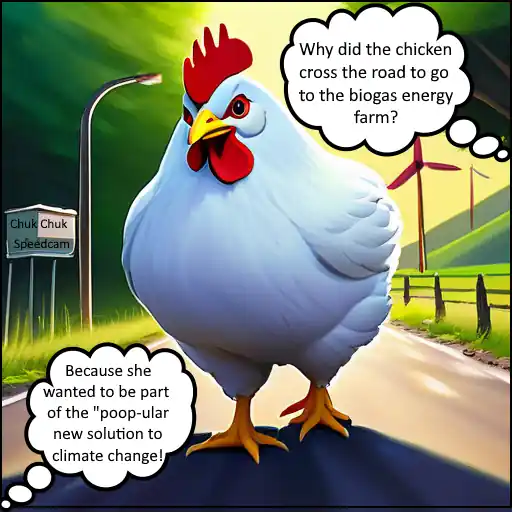
How Does Poop to Power Work?
The process of turning poop into power typically involves the following key steps:
- Waste Collection: Organic waste materials, such as sewage sludge or agricultural manure, are collected and transported to a biowaste-to-energy facility known as a biogas plant or anaerobic digester.
- Anaerobic Digestion: In anaerobic digestion, microorganisms break down the organic matter in the absence of oxygen. This process produces biogas, primarily composed of methane (CH4) and carbon dioxide (CO2).
- Biogas Utilization: The biogas generated during anaerobic digestion can be captured and used as a renewable energy source. It can be burned to produce heat and electricity or further refined to produce biofuels.
- Residue Management: The solid residues left behind after anaerobic digestion, known as digestate, can be further processed and used as organic fertilizers or soil conditioners.
- This is a form of sustainable waste management and can easily be made to be carbon neutral or even carbon positive.
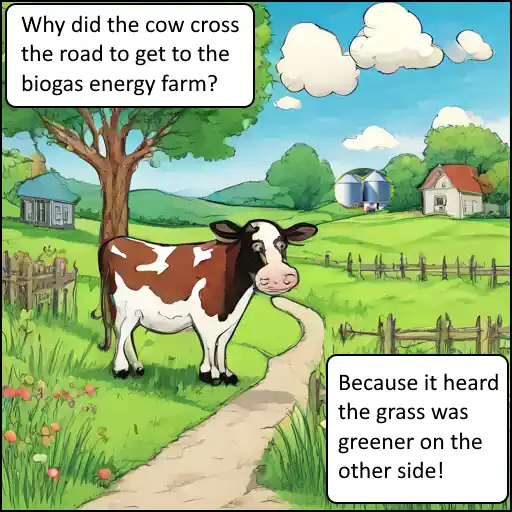
Frequently Asked Questions (FAQs)
1. Is Turning Poop into Power a viable source of renewable energy?
Yes, Poop to Power is considered a viable source of renewable energy because it harnesses the energy stored in organic waste materials. It reduces greenhouse gas emissions by capturing methane, a potent greenhouse gas, and converting it into a useful energy source.
2. What are the environmental benefits of Poop to Power?
Poop to Power has several environmental benefits, including reducing landfill waste, decreasing methane emissions, and providing a sustainable source of renewable energy. It also contributes to better waste management practices and reduces the need for chemical fertilizers when digestate is used as an organic fertilizer.
3. Are there any challenges associated with Turning Poop into Power?
One challenge is the initial cost of setting up waste-to-energy facilities.
Additionally, the process requires careful management to prevent odours, minimize emissions, and ensure the proper treatment of residual materials. Social acceptance and regulatory compliance are also considerations.
The most efficient way to use biogas to reduce climate-changing greenhouse gas emissions is to upgrade the biogas into biomethane, but finding the additional investment for this additional process is often prohibitive.
4. Is Turning Poop into Power a technology only for developed countries?
Poop to Power can be applied in both developed and developing countries.
In developing countries, it can help address sanitation issues and provide clean energy sources, while in developed countries, it can contribute to waste reduction and renewable energy goals. A balloon biogas plant is a cheap way to build a digester to convert manure into biogas energy once the biogas is burnt to make electricity in a biogas generator.
5. Can Turning Poop into Power replace traditional fossil fuels?
While Poop to Power has the potential to generate renewable energy, it is unlikely to entirely replace traditional fossil fuels.
However, it can significantly reduce our dependence on non-renewable energy sources and contribute to a more sustainable energy mix.
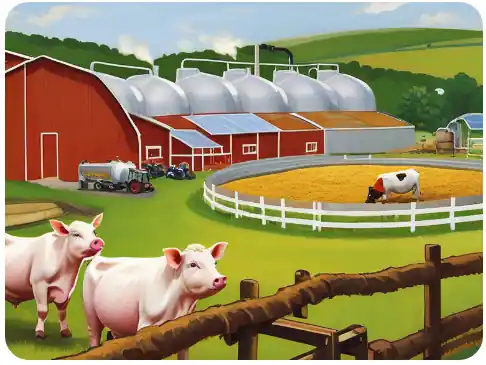
6. What is “power poop”?
“Power poop” is the process of converting waste materials, such as organic matter, into usable energy sources. By harnessing the power of waste, we can create a more sustainable and eco-friendly energy solution.
7. How does “power poop” work?
The process of converting waste into energy involves breaking down organic matter through various methods, such as anaerobic digestion or gasification. This results in the production of biogas or biofuels that can be used to generate electricity or heat.
8. Is “power poop” safe for the environment?
Absolutely! In fact, using waste as an energy source can help reduce greenhouse gas emissions and decrease our reliance on fossil fuels. “Power poop” is a win-win solution for both the environment and our energy needs.
9. Can individuals and businesses benefit from “power poop”?
Yes! Individuals and businesses can participate in the “power poop” movement by implementing waste-to-energy systems in their homes or facilities. Not only does this help reduce waste, but it can also lead to cost savings and environmental benefits.
10. How can I get started with “power poop”?
If you're interested in using “power poop” in your home or business, we can help you get started. From choosing the right technology to providing support and resources, we are here to guide you through the process of implementing sustainable energy solutions.
11. What does the future hold for “power poop”?
The future of “power poop” is bright! As more people and businesses embrace sustainable energy solutions, we can expect to see continued growth and innovation in the field of waste-to-energy technology. Join us in shaping a cleaner and greener future with “power poop”!
Turning Poop into Power – our View
It may not be a nice thing to talk about around the dinner table, but turning poop into power is happening and it is nothing less than a revolution in waste management and renewable energy.
It's a remarkable and innovative approach to addressing the dual challenges of waste management and renewable energy generation, both for small rural communities that would otherwise be cutting down forests for cooking fuel and the largest sewage works operators.
By harnessing the energy potential of organic waste materials, we can reduce landfill waste, mitigate methane emissions, and produce cleaner energy sources. As we continue to explore sustainable solutions for the future, Poop to Power stands as a testament to human ingenuity in the quest for a cleaner and more sustainable planet.


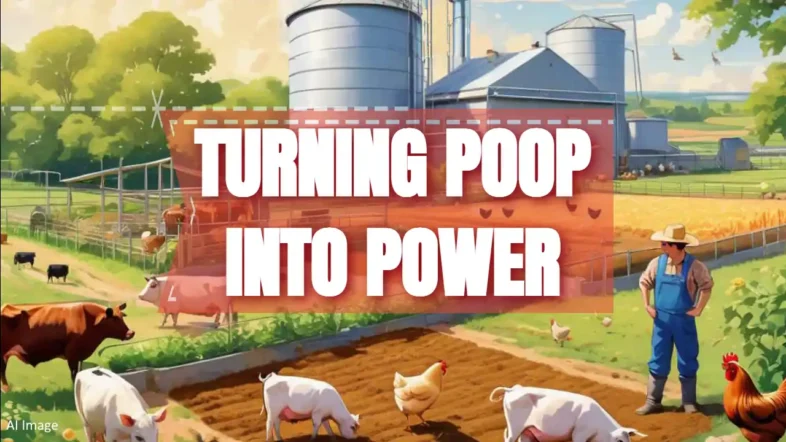
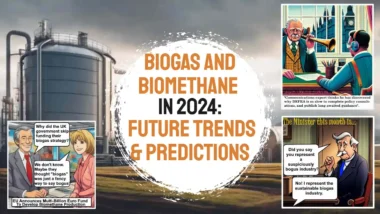
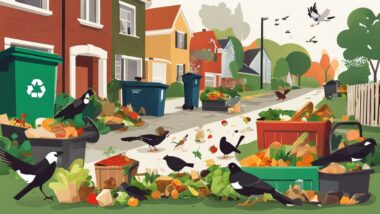

Ey up, talking about turning crap into juice might not be your cuppa tea at tea time, but it’s dead clever, isn’t it? It’s cracking how they’re making use of something so mucky to sort out big problems like binning waste and getting clean energy. Proper smart, that. Shows we can sort stuff out when we put our minds to it, even if it’s a bit whiffy.